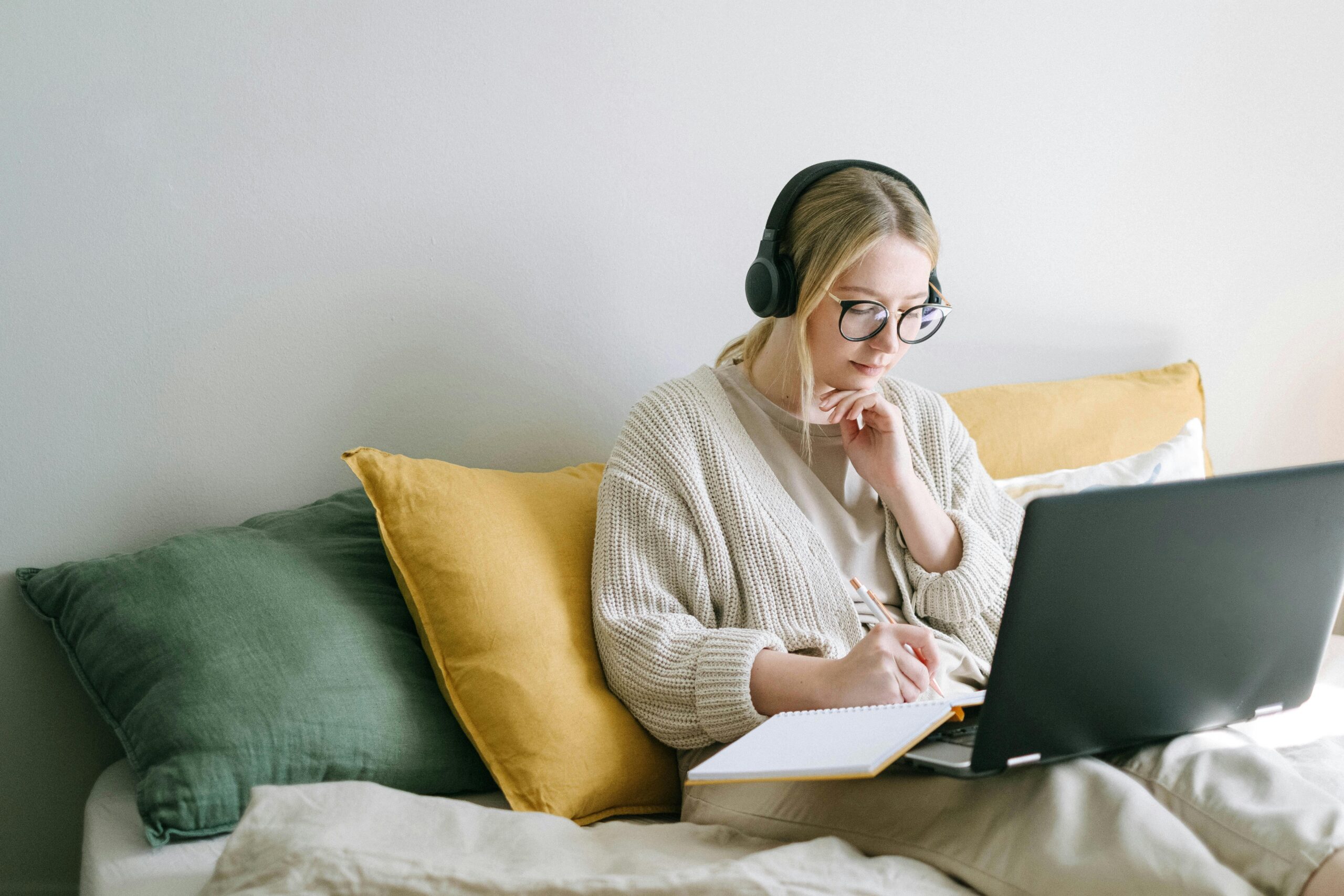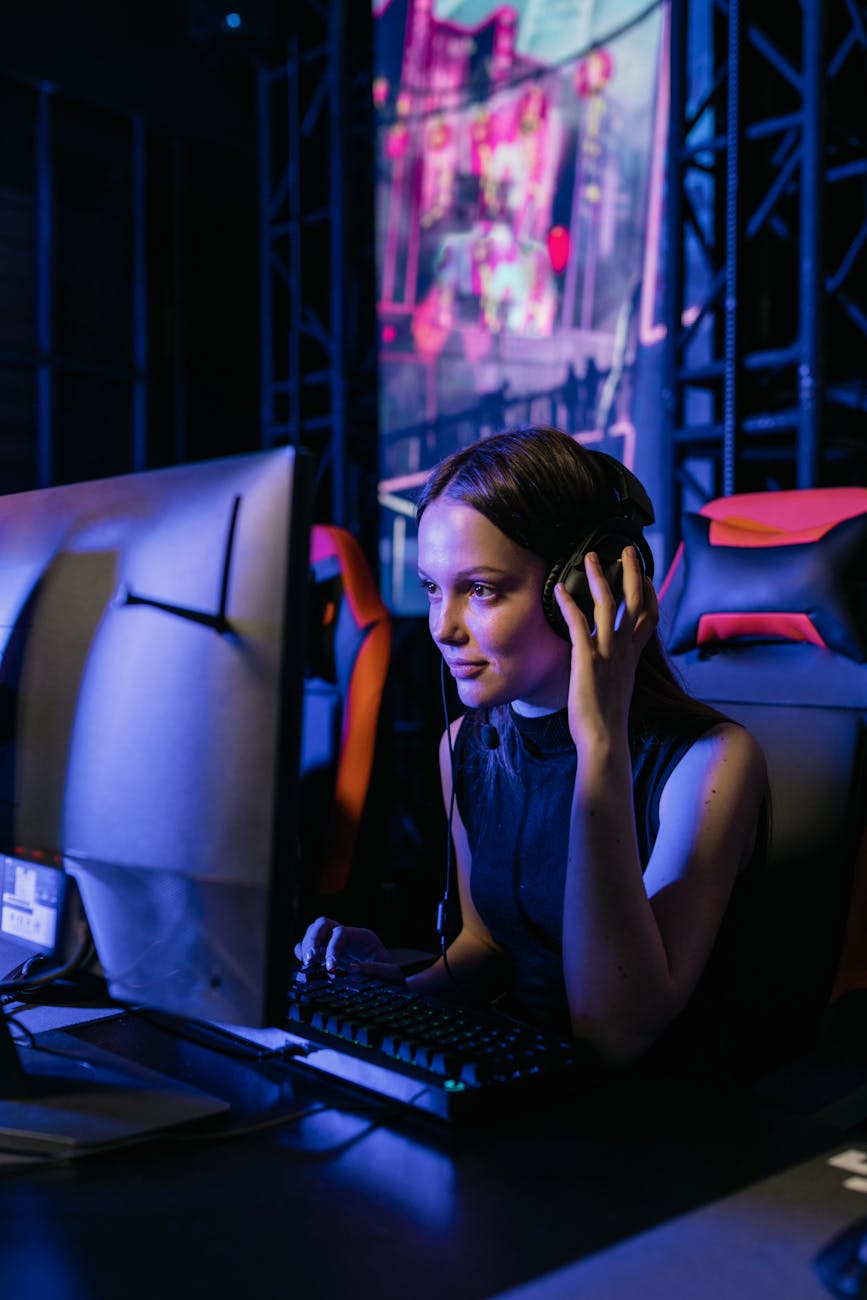Boost Focus: How Blue Light Glasses Enhance Your Study Habits

Why Every Student Needs to Be Aware of Screen Fatigue
If you’re a student, chances are that screens dominate your day-to-day life. From online classes to homework and even your downtime spent scrolling through social media or gaming, it all involves staring at a screen. But while technology makes learning more accessible and fun, it comes with a cost—screen fatigue. You may have heard the term thrown around, but do you really know what it means for your health and academic performance? Let’s dive into why screen fatigue matters and what you can do to tackle it.
What is Screen Fatigue, and How Does It Affect You?

Screen fatigue, also known as digital eye strain, is what happens when your eyes get tired after extended screen use. You’ve probably experienced the symptoms without even knowing it—dry or irritated eyes, blurry vision, headaches, and even trouble focusing. And let’s be real, as a student, you don’t exactly have time to deal with all that, especially when you’ve got deadlines looming and tests to study for.
The issue is that your eyes aren’t designed to focus on screens for hours on end. When you stare at a screen, your eyes constantly adjust to shifting colors, brightness, and text sizes. This continuous effort strains your eye muscles, leading to discomfort and fatigue. And it’s not just your eyes that suffer—screen fatigue can make you feel mentally drained, impacting your ability to concentrate, retain information, and perform well academically. The good news is that there are ways to combat screen fatigue, and being aware of it is the first step.
Why You Should Take Screen Fatigue Seriously
You might be thinking, “It’s just a little eye strain—what’s the big deal?” Well, screen fatigue isn’t just about feeling tired or needing a quick break. Over time, the effects of prolonged screen use can lead to more serious problems, including chronic headaches, sleep disturbances, and even long-term damage to your vision. As a student, your eyes are one of your most valuable tools, and protecting them should be a priority if you want to succeed academically.
Imagine trying to focus on an important lecture or a difficult assignment while your eyes are burning or your head is pounding. Not only is it uncomfortable, but it also lowers your productivity and makes studying feel like a drag. Screen fatigue can create a vicious cycle—your eyes hurt, so you lose focus, which means you need to study longer, leading to even more screen time. It’s a frustrating loop that can be easily avoided by taking steps to minimize screen fatigue.
Simple Habits to Protect Your Eyes
So, what can you do to prevent screen fatigue? It’s actually easier than you think. One of the simplest methods is following the 20-20-20 rule—every 20 minutes, take a 20-second break and look at something 20 feet away. This gives your eyes a much-needed rest and reduces strain. It might seem small, but these quick breaks can make a big difference in how your eyes feel at the end of the day.
Another easy tip is to adjust your screen settings. Lowering the brightness, increasing the text size, and reducing glare can help ease the strain on your eyes. You can also try using blue light filters, which are built into most devices now, or invest in a pair of blue light glasses. These glasses filter out the harsh blue light emitted by screens, which has been shown to contribute to digital eye strain and even disrupt sleep patterns.
The Role of Blue Light Glasses in Fighting Screen Fatigue

Speaking of blue light glasses, let’s talk about how they can be a game-changer for students. You’re probably spending hours on screens each day, and those hours add up. Blue light blocking glasses work by reducing the amount of harmful blue light that reaches your eyes, which helps reduce the symptoms of screen fatigue.
Not only do blue light glasses help protect your eyes, but they can also improve your focus and reduce headaches, allowing you to study for longer periods without feeling worn out. Plus, wearing them during evening study sessions can help prevent blue light from messing with your sleep cycle, so you can fall asleep faster and wake up feeling refreshed. Trust me, your future self will thank you for it.
When Screen Fatigue Affects Your Sleep
Another major downside of too much screen time, especially late at night, is its impact on your sleep. Blue light tricks your brain into thinking it’s still daytime, making it harder for you to fall asleep. And as any student knows, lack of sleep can seriously mess with your mood, focus, and ability to learn.
You might have noticed that after a late-night study session, it’s harder to drift off, and even when you do, your sleep might not be as restful. Over time, this lack of quality sleep adds up and affects your overall health and academic performance. This is where blue light glasses come into play again—they help minimize blue light exposure in the evening, making it easier for your body to wind down naturally and prepare for a good night’s sleep.
Taking Care of Your Eyes is an Investment in Your Future
As a student, you’ve got enough on your plate without having to worry about screen fatigue, but the reality is that your screen time isn’t going away anytime soon. Whether it’s for school, work, or play, screens are a part of life, and learning how to protect your eyes is a skill that will benefit you long beyond your student years.
By adopting simple habits like the 20-20-20 rule, adjusting your screen settings, and using blue light glasses, you can significantly reduce the impact of screen fatigue. Not only will your eyes feel better, but you’ll also notice an improvement in your focus, productivity, and even your mood. So, the next time you sit down for a long study session, take a moment to consider your eyes—they work hard for you, and they deserve some care in return.


One thought on “Boost Focus: How Blue Light Glasses Enhance Your Study Habits”